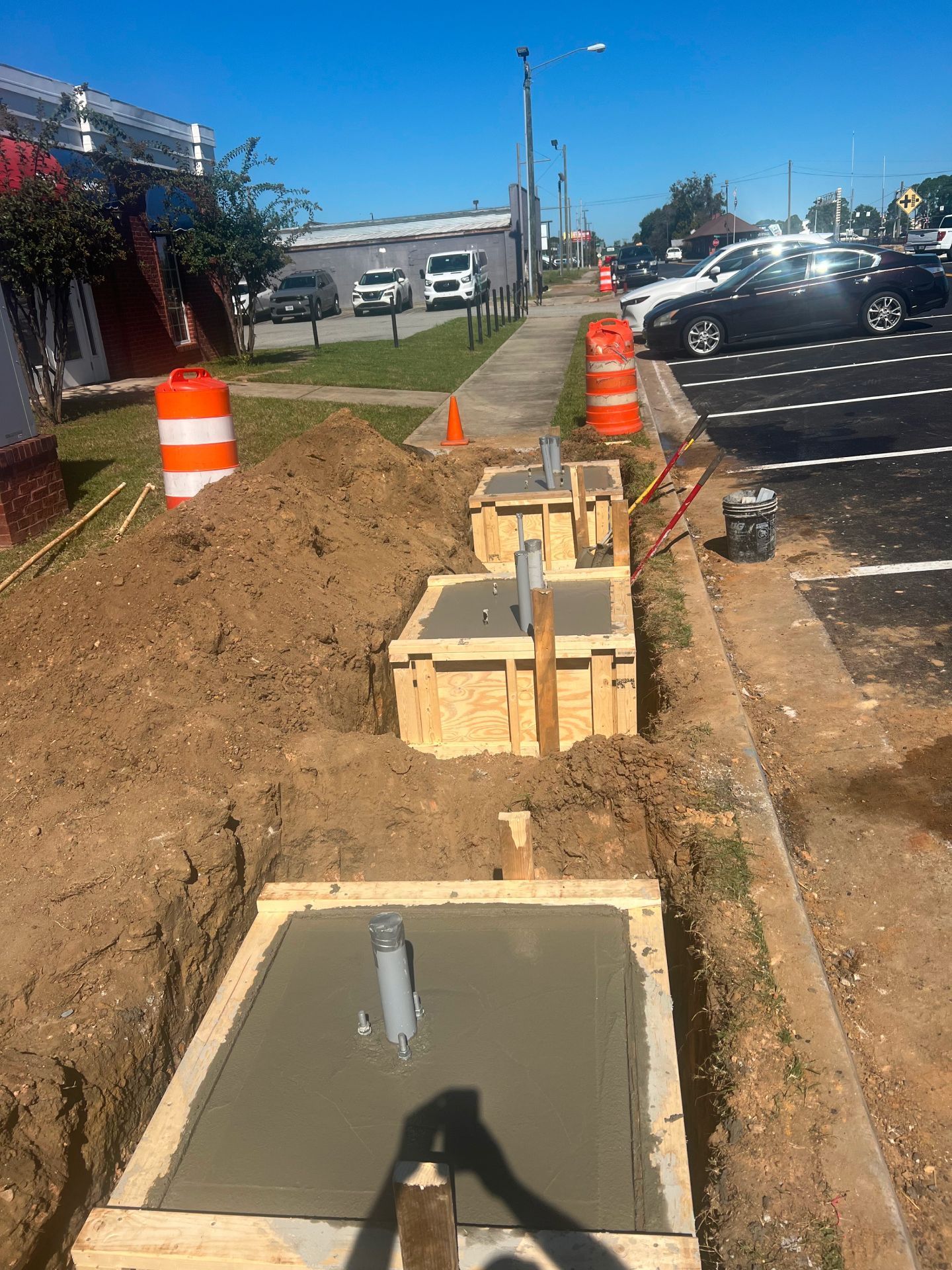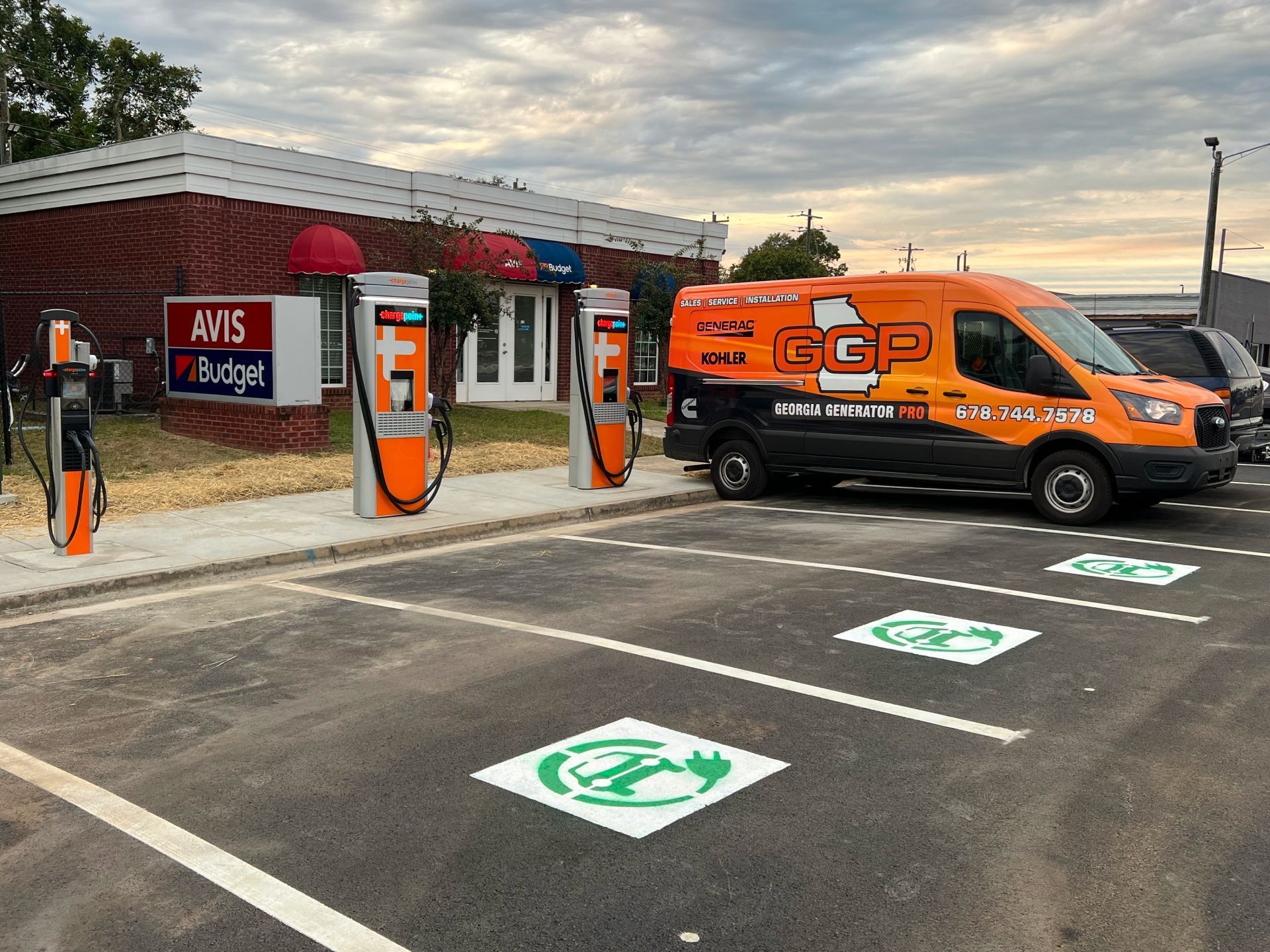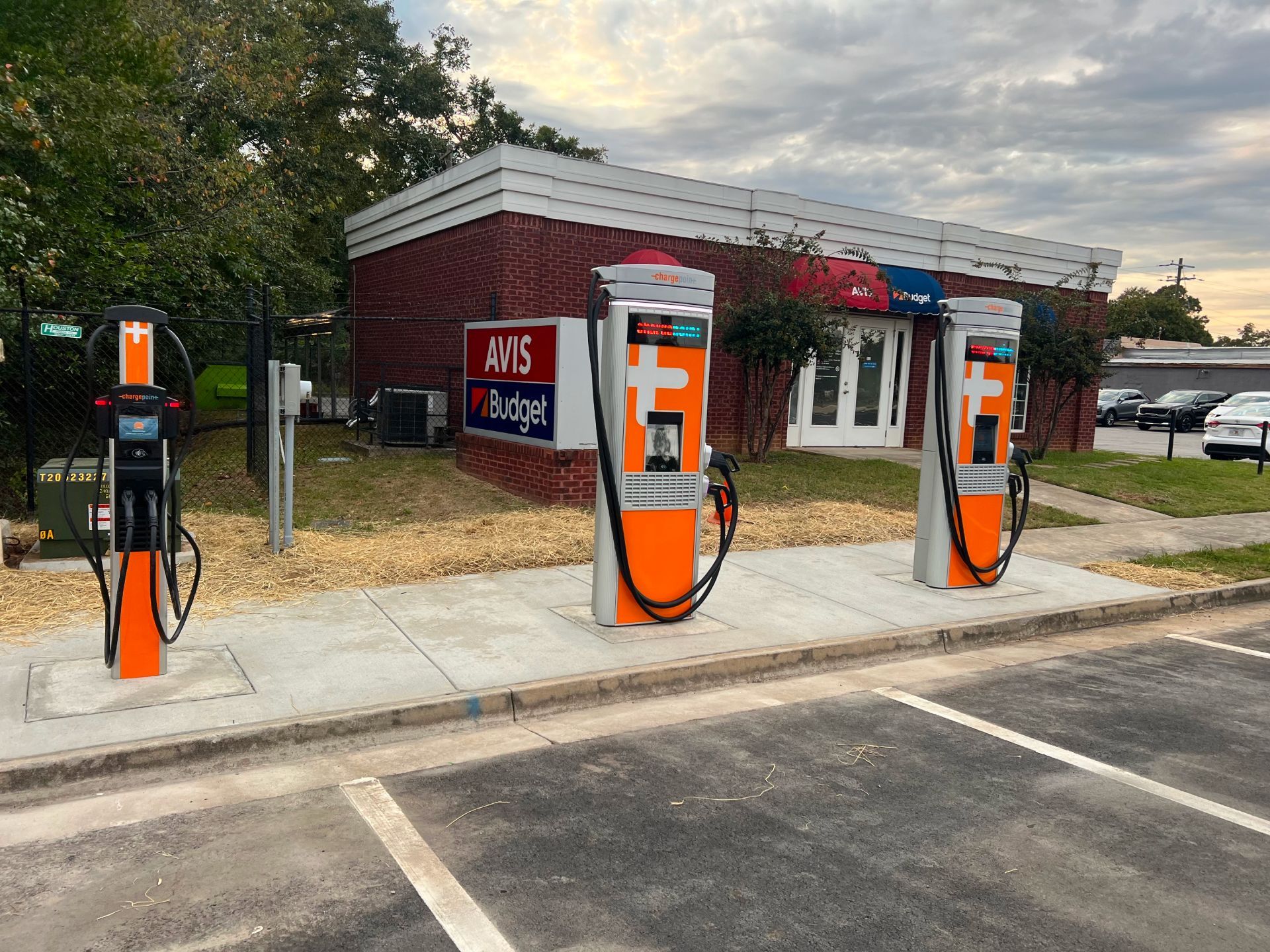EV CHARGER INSTALLATION
Professional EV charger installation by licensed Georgia electricians. Call today!

ENERGY STAR AC Chargers (Level 1 and Level 2)
- Driving an electric vehicle can help you save up to $900 annually on fuel costs and significantly decrease your carbon footprint. For every mile driven using electricity, you can save roughly half of what it costs to drive a similar gasoline powered vehicle – and these benefits are amplified when you charge your vehicle efficiently using an ENERGY STAR certified EV charger.
- EV chargers that earn the ENERGY STAR label are independently certified to save energy and meet safety requirements tested by nationally recognized testing laboratories. Some use smart technology that is networked, allowing remote power monitoring. Certain grid smart chargers may qualify for special energy bill savings programs offered by utilities.
- Level 1 and Level 2 EV chargers that have earned the ENERGY STAR certification use 40% less energy than a standard EV charger in the most common operational mode, standby (85% of the time).
- Some ENERGY STAR certified EV chargers use industry network communication standards and are designed to work with a wide variety of other devices, such as wi-fi routers, electric utility energy management and price signals, etc.
ENERGY STAR DC Fast Chargers
- The number of electric vehicles (EVs) on U.S. roads is predicted to reach between 30-42 million by 2030 and to require approximately 28 million charging ports (public and private). Currently, 182,000 are projected to be direct current (DC) fast chargers.
- There are around 50,000 DC fast chargers nationwide, which are increasingly in demand to support the deployments of medium and heavy-duty EV fleets.
- DC fast chargers (up to 65 kW) that have been independently certified to earn the ENERGY STAR label can save roughly 1.5MWh/year of energy, reducing costs by approximately $185 annually and $1,650 over the lifetime of the charging station.
DC fast chargers that are listed on the ENERGY STAR Product Finder with connected functionality support open standards for communication protocols, allowing for:
- Load dispatch
- Optimization of energy use through demand-response
- Price notification, allowing for lower customer electricity costs, and
- Full vehicle grid integration (VGI)
Buying Guidance for EV Chargers
- Choosing the right EV charger for your needs depends on how many miles you drive every day and whether you have a fully electric car or a plug-in hybrid (gas and electric).
- Level 1 Chargers: Plug into a standard outlet (120 volt) and an hour of charging will provide 2–5 miles of driving range.
- Level 2 Chargers: Require a heavy-duty electrical circuit and plug (240 volt) for 10–20 miles of driving range.
More Tips:
- To prepare for residential EV charger installation, you’ll want to make sure that your home is electric-ready and that your panel can handle the increased load from charging your EV at home. An electric panel upgrade is eligible for a tax incentive for homeowners, and more information can be found here: https://www.energystar.gov/about/federal_tax_credits/electric_panel_upgrade
- Product Finder: Use the ENERGY STAR Product Finder for Electric Vehicle Chargers (AC-Output) and Electric Vehicle Chargers (DC-Output) to find the right EV charger for you.
- Look for Incentives: Information on federal EV tax credits, state efficiency programs, utility rebate programs can be found here. You can find links to 26 state programs and counting to help cover the costs associated with purchasing and installing an EV charger. Visit the ENERGY STAR Electric Vehicle & Plug-in Hybrid Incentives page for more information.
- Federal incentives are newly available for the installation of EV chargers for homeowners, for 30% of the cost up to $1000. These tax credits will be available for EV chargers purchased between January 2023 and December 2032





